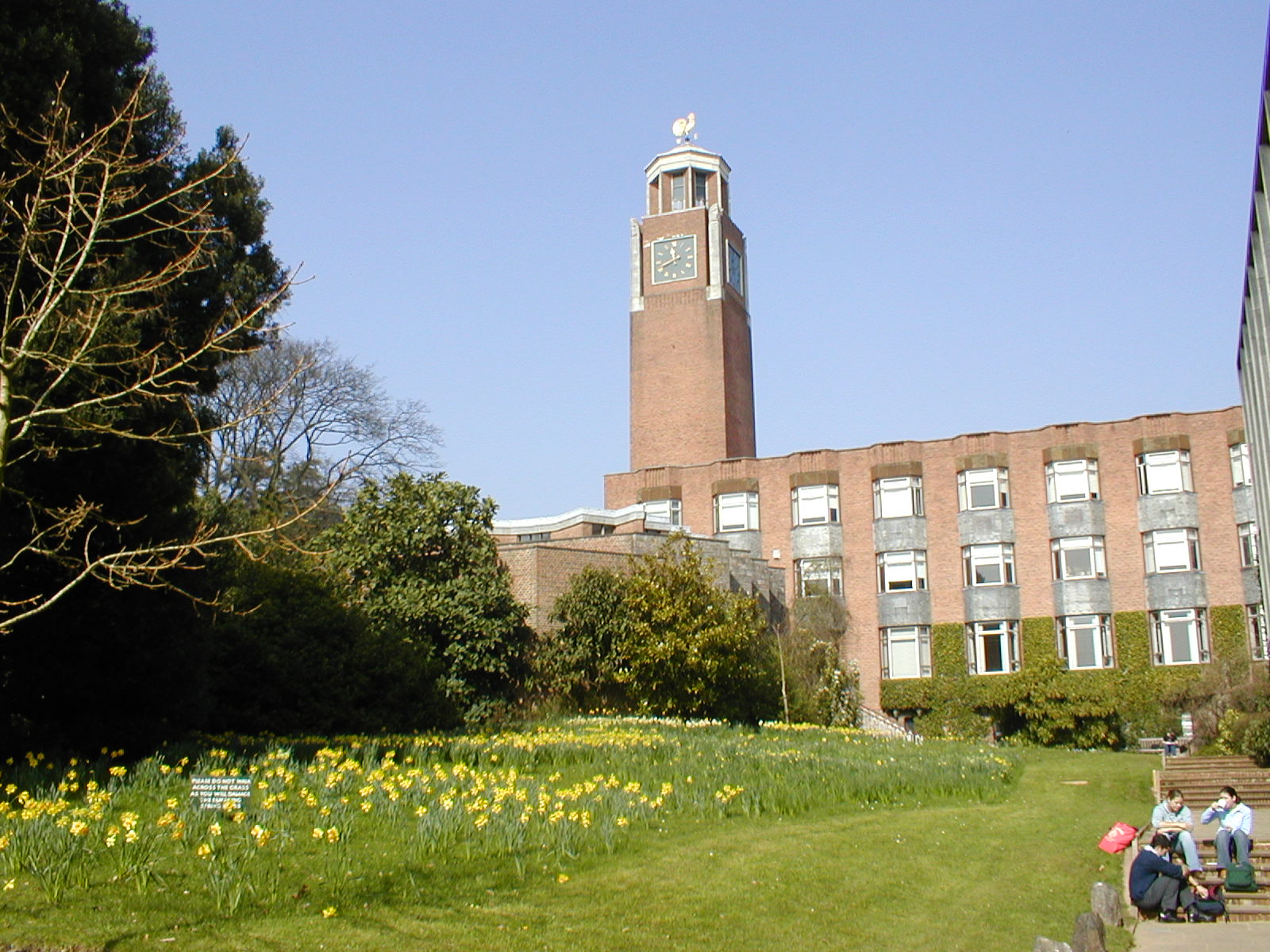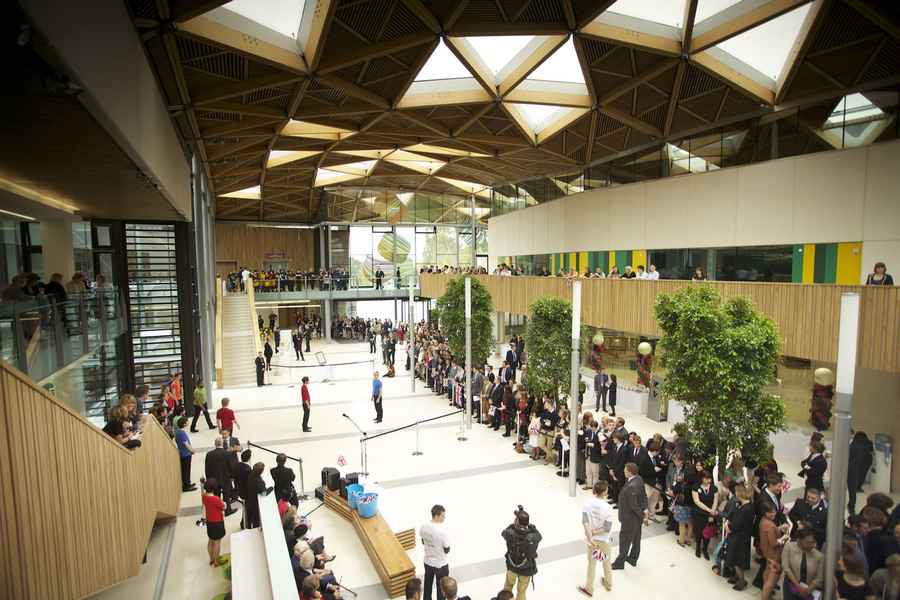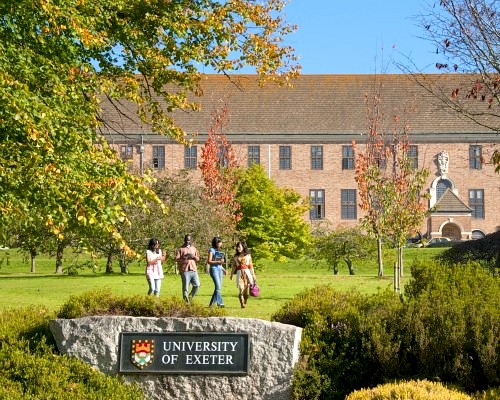The University traces its origins to schools and colleges established in the middle of the nineteenth century as a result of the energies and visions of individual educational reformers and philanthropists throughout Devon and Cornwall.
A hundred years ago, a large part of the Streatham estate was owned by a millionaire family of former East India Company merchants. Pennsylvania was an exclusive suburb, where children were discouraged from walking in the streets, and even chased away if they failed to raise their hats to residents.
St Germans, now the site of many halls of residence, was a private estate of Victorian family villas guarded by a lodge entrance in St Germans Road. Streatham Farm, now at the heart of the main campus, really was a farm and in the 1820s served teas, junket and Devonshire cream to summer Sunday strollers. St Luke's and Camborne were completely separate establishments.
In North Exeter, the Great Exhibition of 1851 spawned local Schools of Art and Science, which in 1868 were housed in the Albert Memorial Museum. Enthusiasm for extra-mural studies grew and, with support from the University of Cambridge, the college became in 1893 the Exeter Technical and University Extension College.
In 1900 its official title was changed to the Royal Albert Memorial College. This in turn became the University College of the South West of England in 1922 and, finally, in 1955, to great rejoicing amongst its students, the College received its Charter as the University of Exeter. Her Majesty the Queen was welcomed to the campus in the following year.
The University gradually transferred from its city centre sites to the sparsely developed Streatham estate over a period of fifty years, as land and buildings became available – and the funds to buy them!
Our Mission
We transform lives through the power of higher education. A leading international university, we undertake groundbreaking research and deliver a world-class student experience in a campus environment of outstanding natural beauty.
Our Values
We agreed our University values through a period of consultation which involved staff, students and alumni. These are the qualities most important to us at the University of Exeter and give focus to our everyday endeavours. We aim to give all at Exeter the opportunity to develop, demonstrate and celebrate our values.
As University of Exeter staff, students and alumni, we value:
Excellence
We aim to realise our potential and celebrate our achievements.
Personal Leadership
We have a clear sense of direction and seize opportunities to be forward thinking.
Creativity
Bold and enterprising, we support innovation.
Truth
We are dedicated to upholding the highest levels of integrity and the ethical pursuit of knowledge.
Working Together
Through a communicative and trusting environment, we nurture Exeter’s unique and invaluable community spirit.
Ambition
We constantly challenge ourselves to do better, pursuing goals with energy and enthusiasm.
Inclusivity
We promote and celebrate diversity, fostering equal opportunities and personal dignity.
Sustainability
Through education and research we are aware of the ecological limits of the planet and promote the careful use of resources.
Adaptability
We are resilient and receptive to change and foster a positive outlook.
Partnership
We work collaboratively to create alliances across sectors and beyond borders.
Accounting and Finance
Anthropology
Arab and Islamic Studies
Archaeology
Art History and Visual Culture
Biosciences
Business and Management
Classics and Ancient History
Clean Energy
Computer Science and IT
Drama
Economics
Engineering
English
Environmental Science
Film Studies
Flexible Combined Honours
Geography
Geology
History
Law
Liberal Arts
Mathematics
Medical Imaging (Radiography)
Medical Sciences
Medicine
Mining Engineering
Modern Languages
Natural Sciences
Philosophy
Physics and Astronomy
Politics and International Relations
Psychology
Sociology
Sport and Health Sciences
Theology and Religion
· IELTS (International English Language Testing System – academic version)
· TOEFL IBT
· Pearson Test of English Academic
· Other English language tests
For detailed information please contact university.
The tuition fees for international students starting their course in October 2014 are:
Arts, Humanities, Social Science (including Business, Economics and Law); Single Honours Mathematics; Geography: £15,000
Accounting and Finance: £17,000
Science and Engineering (including Psychology and Sport Sciences): £17,500
Combined Honours programmes that combine a science and a non-science subject: £16,000
Medicine: Year 1 and 2: £17,500; Years 3, 4 and 5: £29,50



2014 © a2fairs. All Rights Reserved. powered by twopulse.com